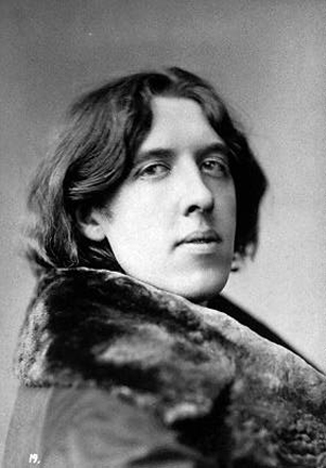
Are we always free to change? It was argued in my Existentialism class today that no matter our past, we can always reinvent ourselves and pursue a different life. I disagreed, however, and I have the famous Irish playwright Oscar Wilde in my corner.
Wilde was blessed with an extraordinary story telling ability. The characters from his plays and novels leap from the page in vivid plot and description. Oscar Wilde was known for his gits to be sure, but he was also known for his lecherous behavior which eventually led to imprisonment and disgrace before his death.
Wilde gave both personal and literary testimoy to his destructive behavior. Shortly before his death he wrote the following words:
I let myself be lured into long spells of senseless and sensual ease…Tired of being on the heights, I deliberately went to the depths in search for new sensation. I grew careless of the lives of others. I took pleasure where it pleased me, and passed on. I forgot that every little action of the common day makes or unmakes character, and that therefore what one has done in the secret chamber, one has some day to cry aloud from the housetop. I ceased to be lord over myself. I was no longer the captain of my soul, and did not know it. I allowed pleasure to dominate me. I ended in horrible disgrace.
Wilde witnesses the effect that behavior has on character here. The choices that we make today will determine what options we have in the future. If I make bad choices, I damage my soul and distort my character. If I continue down the wrong path long enough, I rob myself of the very freedom that I had once treasured; I will indeed cease to be the captain of my soul. Wilde wasn’t the first to discover this truth, of course; Aristotle stated much the same thing and the principle of moral sowing and reaping is clearly taught in Scripture (Galatians 6:7). Every decision we may effectively limits our future decisions: for good or evil.
Wilde’s literary autobiography is contained in the novella, The Picture of Dorian Gray which relates the story of an innocent young man’s descent into debauchery and self-destruction. Throughout the story, Gray learns that he is able to take part in the vilest of behavior, yet suffer no consequences to his body or appearance; the eponymous picture suffers all of the damage. However, Dorian eventually discovers that the picture is a representation of his own twisted soul, and at the climax of the narrative when he reveals the ruined painting to the artist who created it (just before murdering him):
“It is the face of my soul.”
“Christ! what a thing I must have worshipped! It has the eyes of a devil.”
“Each of us has heaven and hell in him, Basil,” cried Dorian
with a wild gesture of despair.
Hallward turned again to the portrait and gazed at it.
“My God! If it is true,” he exclaimed, “and this is
what you have done with your life, why, you must be worse
even than those who talk against you fancy you to be!”
He held the light up again to the canvas and examined it.
The surface seemed to be quite undisturbed and as he had left it.
It was from within, apparently, that the foulness and horror
had come. Through some strange quickening of inner life
the leprosies of sin were slowly eating the thing away.
The rotting of a corpse in a watery grave was not
so fearful.
His hand shook, and the candle fell from its socket on the floor
and lay there sputtering. He placed his foot on it and put it out.
Then he flung himself into the rickety chair that was standing by
the table and buried his face in his hands.
“Good God, Dorian, what a lesson! What an awful lesson!”
There was no answer, but he could hear the young man
sobbing at the window. “Pray, Dorian, pray,” he murmured.
“What is it that one was taught to say in one’s boyhood?
‘Lead us not into temptation. Forgive us our sins.
Wash away our iniquities.’ Let us say that together.
The prayer of your pride has been answered. The prayer of your
repentance will be answered also. I worshipped you too much.
I am punished for it. You worshipped yourself too much. We are
both punished.”
Dorian Gray turned slowly around and looked at him with tear-dimmed eyes.
“It is too late, Basil,” he faltered.
“It is never too late, Dorian. Let us kneel down and try if we
cannot remember a prayer. Isn’t there a verse somewhere,
‘Though your sins be as scarlet, yet I will make them as white
as snow’?”
“Those words mean nothing to me now.”
For they have sown the wind, and they shall reap the whirlwind. (Hosea 8:7)
February 13, 2014 at 7:05 pm
So, what better way to capture the content of the brilliant minds behind the writing than to make it tangible. You are able to begin the one 7 days getaway, then when you come back to confirm, it’s nevertheless producing men and women backlinks.
September 25, 2018 at 6:05 am
really good response(: